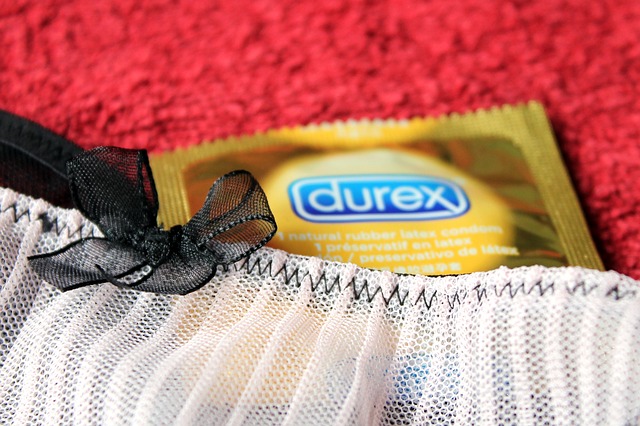One of the ways to have worry-free sex is through the use of contraceptives. Through them it is possible to avoid an unwanted pregnancy or a sexually transmitted disease. But how many types of contraceptives are there? Know them and discover which one is your favorite:

Contraceptives: what types exist?
First of all, you should know that there are many different types of contraceptives and that not all of them are the same. Let’s say that there are some that avoid possible unwanted pregnancies and others that also protect against possible sexually transmitted diseases. You must know them to know which one to choose.
Starting with those known as barrier contraceptives, which ones do we have? The following:
- Condom: It is the most common of all. It is known as the best method to prevent sexual diseases. Keep in mind that it is usually latex, so you should not be allergic to this material to use them.
- Spermicide: works as a kind of chemical barrier and prevents sperm from reaching the uterus. But it must be used together with another method, since it is ineffective in itself.
- Female condom: made with nitrile rubber, this contraceptive method protects against unwanted pregnancies and the most common STDs. But it is less effective than the male condom.
- Diaphragm: It is a flexible silicone dome that is placed on the cervix. It does not cover the mucosa, so it is not recommended to avoid STDs.
- Vaginal sponge: it is a kind of device made with polyurethane foam with spermicide. It does not prevent STDs
On the other hand, we have hormonal contraceptives. The pill is the most common, but there is more:
- Pill: the best known. It should be used only under medical prescription. In many cases, the doctor recommends it to help with various problems, although it also has contraindications.
- Progestageno mini-pill: This “second version” of the pill appeared due to the side effects caused by the first.
- Day after pill (PDS): Prevents pregnancy if taken before 72 hours after sexual intercourse. It should only be taken in specific cases.
- Vaginal ring: it is formed of copolymer of vinyl acetate and ethylene and releases estrogen and progesterone. It lasts 3 weeks.
- Contraceptive adhesive: it is put on the skin and should be changed every 7 days.
- Injectable contraceptive: Injected by the gynecologist and is similar to the pill.
- Contraceptive implant: it is very effective. It is a kind of plastic stick that is implanted under the skin. It lasts 3 years.
Although these solutions are interesting, they are not the only ones! You can also opt for permanent contraceptives, such as the following:
- Intrauterine device (IUD): within the permanent ones, the IUD is the best known. It is a small device that is inserted into the uterus and must be placed by the gynecologist himself. The hormonal lasts 5 years and the T, 10 years. It is a safe and effective method.
- Vasectomy: this surgery is performed for men. In it, the vas deferens that carries sperm are cut, to avoid unwanted pregnancies.
- Tubal ligation: Another option is that known as tubal ligation, which is performed by surgical or endoscopic intervention.
On the other hand, in addition to these methods, there are those known as natural methods that can be used naturally, freely, without going to the doctor or buying anything. Always, under the responsibility of each one. We have the following as main:
- Menstrual calendar: This calendar establishes that the most fertile days of women occur on the 15th day of the menstrual cycle. It is a way to avoid possible pregnancies, although it only works if you have regular cycles.
- Interrupted intercourse: also known as reverse gear, the penis is removed before ejaculating. The risk is that the man may not remove it in time and some pre-seminal fluid is filtered with sperm.
- Cervical mucus: before suffering ovulation, the mucus is more elastic. It is a way of knowing that it is the most fertile period.
- Breastfeeding: when women breastfeed, they don’t ovulate. This is due to prolactin. So, in the first 6 months of childbirth and if the baby is fed only breast milk, it can be used as a contraceptive method. But you must resort to it with caution.
These are the main types of contraceptives that exist and that you can use when having sex. It is a way to avoid an unwanted pregnancy or the transmission of a sexual disease.
What method to choose?
Each has its pros and cons. However, the condom is one of the most recommended, because protection is the most complete possible in all directions. It is effective, economical, easy to acquire, etc. And there is even for men and women, being the first most effective.
However, it is important that you know all the alternatives that are available in the market, since there are men who do not feel comfortable with the condom or who do not like the experience. In that case, the woman taking the pill is usually the best option. But you see that there is a lot to choose from.
There are also those who resort to reverse gear, that is, interrupted intercourse. Although it may work, it has its risks, like everything else. That is why it is important that you put everything on a scale and choose what you prefer.
And you, what method do you prefer and why? Are you more conservative or do you prefer to innovate in this aspect?
